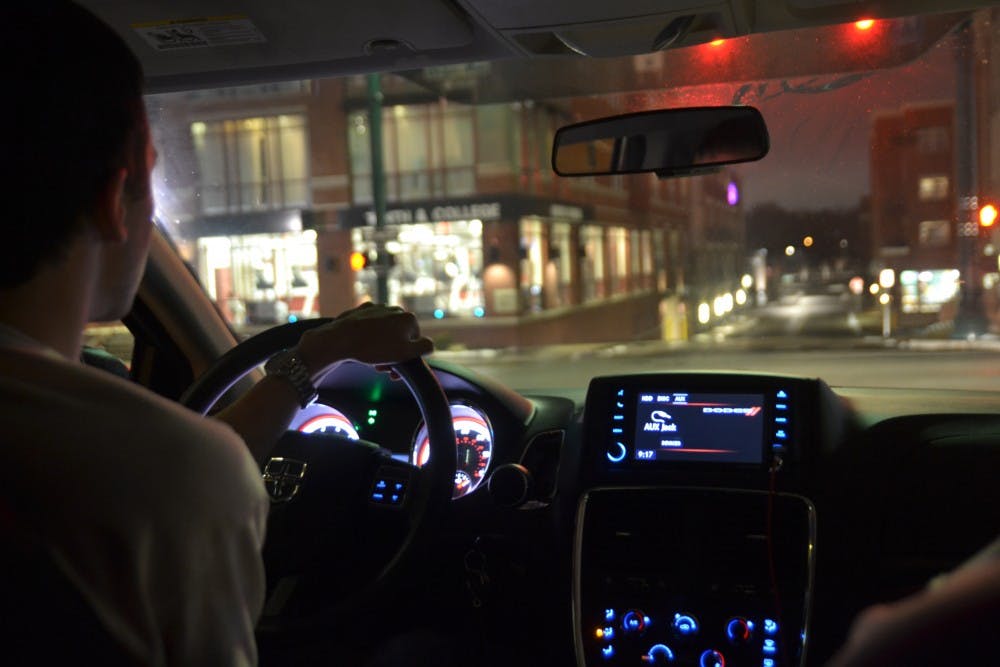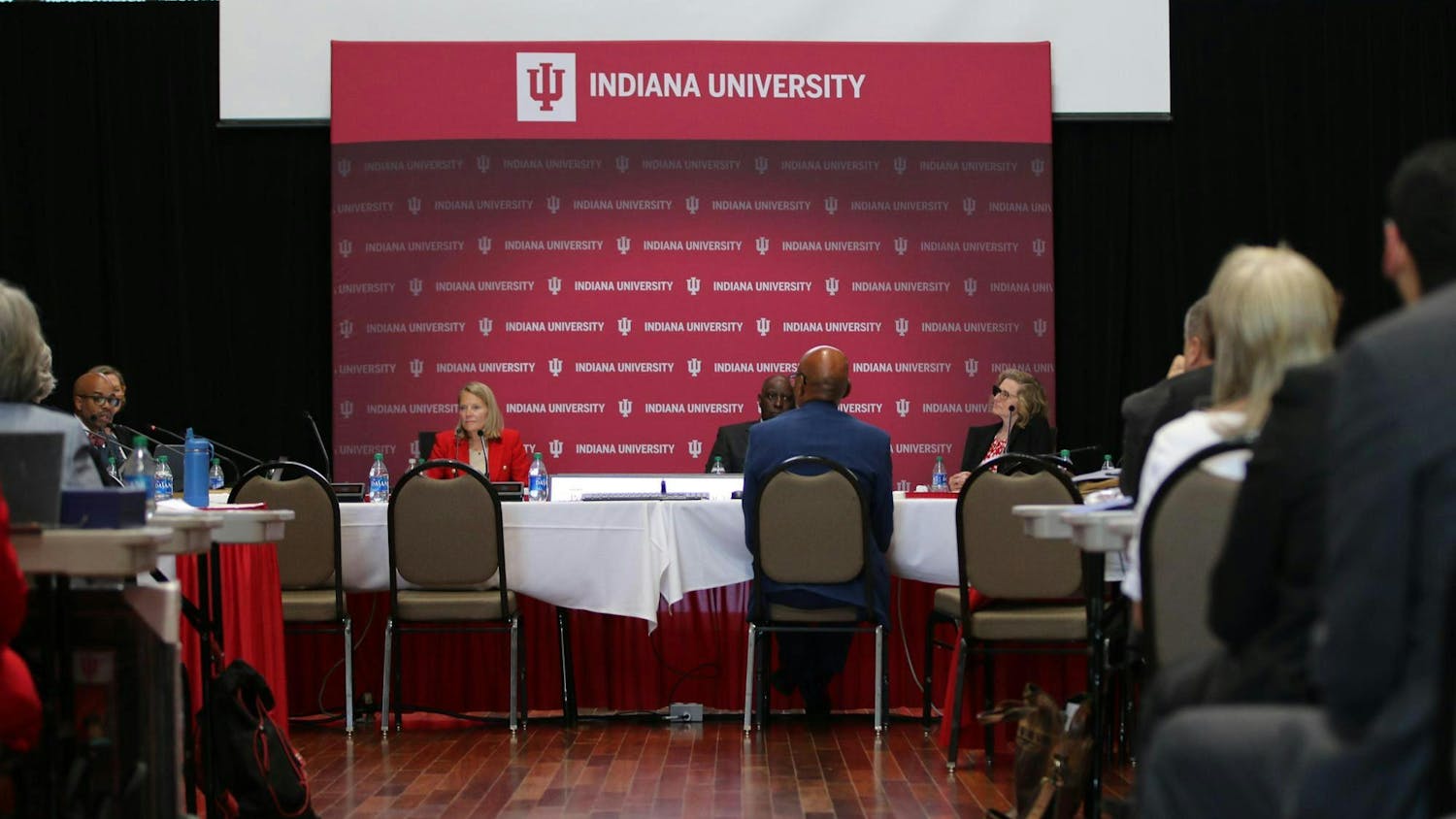IU stresses having a “Culture of Care” which is an “initiative focused on creating a campus culture in which members of the Indiana University Bloomington community demonstrate ‘care’ for one another.”
This statement should not only be expected of students. Authorities need to adapt this “Culture of Care” by prioritizing public safety budgeting and resources.
Although IU has public safety resources for students, they are surface level and do the minimal job of actually keeping students safe.
Safety Escort is an IU service that provides free rides to the community within Bloomington city limits. The focus is to ensure student safety, but it is not an emergency service.
It's hours of operation are from 8 p.m. to 1:45 a.m 7 days a week, according to Elizabeth Sexton, a student employee for the safety escort services.
Users can download an app in which they choose a destination and receive an estimated time of arrival by the service.
Safe transportation is crucial to the overall public safety of campus.
Safety Escort is unreliable so students do not use the app as often as they could.
According to the IU Safety Escort website, there are only three minivans, which does not reflect the student body of over 40,000 students. This causes wait times to be long and inconsistent. As a result, people will often cancel their ride.
If a student does not have money to pay for an Uber or another source of transportation, they are put in a dangerous situation. To be frank, Safety Escort is a very inconvenient service.
Each student is also limited to 16 rides per semester. Sixteen might sound like a respectable amount, but when there are around 100 days in a semester that is an issue.
Nobody likes to pay for rides if they do not have to. If a student runs out of uses there is a high chance they will just decide to walk, which ruins the entire idea behind these rides.
Another problem is the hours of service. Safety Escort stops running at 1:45 a.m., and they often will stop taking requests 30 minutes before they close.
The nature of university life is such that students are awake doing work or out with friends until quite late — often much later than 1:45 a.m.
University of Michigan has a service called Ride Home which is a “free shared-ride taxis service for students, faculty and staff to their residence halls, vehicles parked in university-operated lots or structures, or local residence.” This runs from 2:00 a.m-7:00 a.m.
This is a program incredibly more inviting, safe and reliable than the services IU offers. It is an idea IU should consider.
One might argue that nobody will want to work those hours, but that is simply not an excuse to not provide rides for students overnight.
If public safety was a priority this could be discussed, and times of free transportation could be altered.
Freshman Ella Schnefke works for IU Safety Escort and she believes that the concept is good but could be improved significantly if the resources within Safety Escort were more efficient.
As a driver and navigator, Schnefke is required to report a sexual assault if made aware of it.
“I understand why we have to, but it is a scary, scary thing,” she said. “I wish I wasn’t in that position. People should have a choice on whether or not they want to pursue that.”
Schnefke had to take a sexual assault course as a Safety Escort employee. That shows how prevalent sexual assault is on IU’s campus. Drivers have to be properly trained on how to handle these situations.
According to a 2015 survey, 35 percent of undergraduate women reported being a victim of a form of sexual harassment at IU. Of that 35 percent, 86 percent did not report it to anyone at IU.
Last fall there were two reported rapes in 10 days in residential facilities at IU.
Safe transportation would aid in decreasing the amount of sexual harassment and crimes. While these crimes are unfortunately normalized due to the culture of college, having fool-proof safe transportation is a good first step in solving this issue.
There is a priority problem when the Media School has a 24-foot-by-12-foot TV screen, but Safety Escort’s technology is not as advanced as it could be.
There is a serious problem when the quality of the landscaping is seemingly more important than the quality of safety resources.
Changes need to me made when a $53 million proposal is passed to renovate Memorial Stadium, but Safety Escort still only has three outdated mini vans.
This story was updated Jan. 22 at 6:49 P.M.




